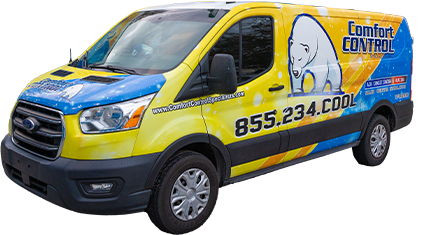[vc_row][vc_column][vc_column_text]In the sweltering heat of a Florida summer, your home’s air conditioning (AC) system works tirelessly to keep you cool. But have you ever wondered why, despite cranking up the AC, it sometimes struggles to keep your home as cool as you’d like? There’s a scientific reason behind this – your home AC can only cool the indoor air about 20 degrees lower than the outside ambient temperature. This article aims to shed light on this cooling limitation, providing you with a better understanding of your AC system and its abilities.
Thermal Science and the Art of Cooling
The ability of an AC system to cool a space is fundamentally tied to the principles of thermal science. An air conditioner works by transferring heat from inside your home to the outside, effectively ‘cooling’ the air inside. To understand why this system has limitations, we first need to delve into some basic thermodynamics.
Air conditioners operate based on the Second Law of Thermodynamics, which states that heat naturally flows from a high-temperature region to a low-temperature region. Your AC exploits this principle by using a refrigerant – a special fluid that easily changes between gas and liquid states – to absorb heat from inside your home and expel it outside.
The Role of Your AC’s Components
Your AC system has four primary components: the evaporator, compressor, condenser, and expansion valve. The evaporator is located inside your home, and it’s where the refrigerant absorbs heat from the indoor air. The now warm refrigerant gas is compressed in the compressor, raising its temperature further. The high-temperature, high-pressure refrigerant gas then enters the condenser (located outside), where it releases its heat to the outside air and condenses back into a liquid. The refrigerant, now a cool liquid, passes through the expansion valve and returns to the evaporator, ready to absorb more heat.
The 20-Degree Rule and its Implications
In a perfect system, this process would continue indefinitely, with your AC cooling your home to any temperature you desire. However, real-world systems are never perfect. The efficiency of an AC unit is affected by several factors, including the temperature difference between the indoor and outdoor environments, the humidity level, and the unit’s age and maintenance condition.
A common rule of thumb is that a typical AC unit can cool your home’s air about 20 degrees Fahrenheit lower than the outside temperature. So, if it’s 100 degrees outside, your AC might only get your home down to about 80 degrees. This is often why on extremely hot days, especially in the heat of a Florida summer, your AC may struggle to keep your home as cool as you’d like.
The reason behind this 20-degree rule is rooted in the thermal efficiency of the AC system. As the temperature difference between the indoor and outdoor environments increases, the AC unit needs to work harder to expel heat outside. Remember, heat naturally wants to move from hot areas to cool areas. So, the hotter it is outside, the harder your AC has to work to push that heat outdoors.
Humidity: The Invisible Adversary
Another crucial factor in this equation is humidity. Floridian summers are not just hot, but also humid. Humidity is the amount of water vapor in the air, and it can significantly affect how we perceive temperature. Our bodies cool down through the process of evaporation – when sweat on our skin evaporates, it takes some heat with it, cooling us down. But when the air is already saturated with water vapor (i.e., it’s humid), this process is less effective, making us feel hotter than it actually is.
Your AC also helps to control the humidity level inside your home. It does this by condensing water vapor from the indoor air, effectively ‘drying’ it. However, the more humid it is, the harder the AC has to work to remove this moisture. This added workload can limit the AC’s ability to cool the air.
Maintaining Your AC’s Cooling Efficiency
Understanding these factors can help you manage your expectations and use your AC more effectively. If it’s a hot and humid 100-degree day outside, even the most efficient and well-maintained AC unit might not get your home’s temperature below 80 degrees.

Regular maintenance of your AC unit can help ensure it operates as efficiently as possible. Cleaning or replacing filters, ensuring the outdoor unit is free of debris, and getting regular check-ups from a professional can all help keep your AC in top shape.
Investing in insulation can also be beneficial. Good insulation slows down the rate of heat transfer into your home, helping to maintain a more consistent indoor temperature. Shades, blinds, and curtains can also help by blocking direct sunlight, which can significantly heat your home.
Understanding your AC system’s limitations doesn’t mean you’re stuck with an uncomfortably warm house. With regular maintenance and smart use of your AC system, along with efficient home insulation, you can ensure a comfortable and cool home environment, even in the midst of a hot Florida summer.
If you live in Odessa, Keystone, Spring Hill, Tarpon Springs, Land O Lakes, Oldsmar, Brooksville, or the surrounding areas, please don’t hesitate to contact the Comfort Control Specialists for a comprehensive AC inspection and tune-up or AC repair.[/vc_column_text][/vc_column][/vc_row]



